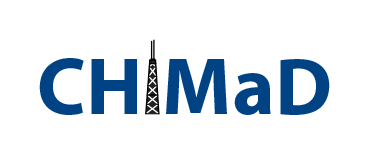2017 ASM Materials Genome Toolkit Awardees Announced
Please see this link for the original press release.
MATERIALS PARK, OHIO—The ASM Materials Education Foundation is pleased to announce the winners of the 2017 ASM Materials Genome Toolkit competition. As determined by an independent review committee, the undergraduate engineering departments at the University of Florida, the University of Pittsburgh, and Wright State University will receive a three-year site license for a suite of Thermo-Calc software tools intended to aid in the instruction of computational materials design, an emerging engineering practice deemed essential to the success of the U.S. Materials Genome Initiative (MGI) and global leadership in manufacturing.
The winners were selected based on how they plan to integrate the toolkit into their undergraduate curriculum and in senior capstone projects designated for the ASM MEF Undergraduate Design Competition. Meaningful use of the analytical software – consisting of thermodynamic and diffusion modeling codes and a precipitation simulator – will expose students to the innermost workings of metals and alloys and the relationships linking microstructure development and material properties. It also gives them hands-on experience with some of the most advanced tools and techniques used in industry today.
Twelve engineering schools have now been awarded Materials Genome Toolkits thanks to Thermo-Calc Software AB and the NIST-sponsored Center for Hierarchical Materials Design. These schools – Alfred University, California State Polytechnic University in Pomona, Carnegie Mellon University, Case Western Reserve University, the University of Maryland, Michigan Technological University, Missouri University of Science & Technology, Oregon State University, Virginia Polytechnic Institute and State University, and the 2017 winners – are now part of a trailblazing group, leading the way in engineering education and the development of a technological workforce equipped for the opportunities and challenges ahead.
“We are pleased with the success the toolkit program is having in bringing the Materials Genome to a growing number of undergraduate programs,” says Gregory B. Olson, FASM, who came up with the toolkit concept in 2009 while serving on the ASM Materials Education Foundation’s Action in Education Committee (AEC) and its subcommittee on Computational Materials Engineering. Olson is a professor at Northwestern University and one of the founders of QuesTek Innovations LLC. He is also co-director of the Center for Hierarchical Materials Design, serving alongside Peter Voorhees, Northwestern University, and Juan De Pablo with the Institute for Molecular Engineering at the University of Chicago.
The ASM Materials Education Foundation provides for the advancement of scientific and engineering knowledge through its support of education and outreach programs. Thanks to the hard work of ASM volunteers, the Foundation is able to provide exciting opportunities for young people, encouraging them to pursue careers in materials, science, and engineering.



